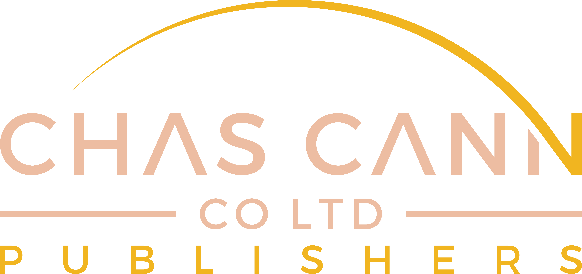11 FAQ’s ABOUT ISBN’s THAT SELF-PUBLISHING AUTHORS NEED TO KNOW.

1. What is an ISBN?
ISBN stands for International Standard Book Number and is a unique numerical identifier. It allows bookshops, online retailers, distributors, wholesalers and libraries to classify books, analyse sales data and facilitate stock control. All print versions of books must have an ISBN which is found in barcode form on the back cover and on the copyright page.
2. What’s the difference between ISBN-10 and ISBN-13?
ISBN-10’s were replaced in 2007 with ISBN-13’s. The International Organisation for Standardisation (ISO) decided to use the same numerical format by adding 978 and recalculating the final number. As the supply of 978 numbers ran out, a new 979 prefix has been introduced.
3. Do I actually need an ISBN for my books?
It depends. If your plans are to publish solely on the one platform, such as Amazon, then you can use their free ISBN’s for print versions and ASIN’s (Amazon Standard Identification Number) for e-books. However, if you are looking to go wide (publish your books on a range of different platforms), my advice would be to buy your own ISBN’s at the outset if you are able to.
Is it worthwhile to buy ISBN’s for e-books? I believe it is for the following reasons. Let’s just say you obtained a free ISBN from Draft2Digital (which, like all free ISBN’s are only relevant to that particular platform. You cannot use them anywhere else). After a while, you saw that Smashwords offered outlets that were different to D2D so you decide to go with them and obtain another free ISBN. You now have two ISBN’s for the same book. This could continue until you have three or four different ISBN’s for the same title.
To be fair, looking at this situation from a bookstore’s perspective, it looks unprofessional. Libraries are playing a more significant role these days with e-books. Overdrive is the largest supplier of e-books, digital audiobooks and other digital media into schools and libraries. They need an ISBN. Unless you have one, you’re losing out.
Another advantage of buying your own is that you are identified as the publisher. This raises your book’s perceived worth and means more bookstores are likely to accept your book. Owning your own ISBN means that your book will be included in industry surveys recognising indie authors more and more.
Whether you use your own ISBN’s for e-books is your choice. While it may not play a huge role in book sales, it undoubtedly helps.
4. If I buy my own ISBN’s, how much do they cost and where do I purchase them?
If you choose to use your own ISBN’s, then you will need to purchase them (Canadian citizens are in the fortunate position of acquiring them for free). ISBN’s are country specific so if you live in the UK, you would have to purchase yours from Nielsen’s (https://www.nielsenisbnstore.com/). Those authors in the US would purchase theirs from Bowker’s (https://www.bowker.com/). Check out this website for ISBN agencies in all other countries – https://www.isbn-international.org/content/national-isbn-agencies.
Bear in mind that you need an ISBN for paperbacks, hardbacks, e-books (preferably) and audiobooks. Buying individual ISBN’s works out very expensive. If you plan on writing numerous books, then decide on what quantity you require and can afford. The more you buy, the cheaper it becomes.
At the time of writing, these are the quantities and prices for Bowker and Nielsen:
BOWKER (USA):
1 – $125
10 – $295
100 – $575
NIELSEN (UK):
1 – £89
10 – £164
100 – £369
5. Can I buy ISBN’s from third parties?
This is not advisable because the imprint or ISBN ownership remains with whoever purchases the ISBN’s. The third party will be the recognised publisher and not you.
6. If I make changes to my book, do I need a new ISBN?
For anything other than complete rewrites, the addition of chapters and suchlike, then the answer is ‘no’. The general rule of thumb is that if 10% or more of your copy is changed, then you need a new ISBN. A new cover doesn’t warrant a new ISBN nor do small changes such as correcting spelling errors or altering back matter.
7. Does one ISBN cover all formats?
8. Do I need to have another ISBN if I publish my book in a foreign language?
Yes you do. It counts as a completely separate book.
9. Do I need a separate ISBN for each country my book is sold in?
No, you don’t need a separate ISBN. Whether you have a free ISBN or a paid one, the ISBN is specific to your book. It doesn’t matter how many countries your book is sold in, the ISBN remains the same worldwide.
10. Where does the ISBN show up in my book?
There are two places it needs to show up in your book. The first and most important is on the bottom right of the back of your book cover. Your book cover designer should leave room for this in the design spec.
The other place for your ISBN is the copyright page where it’s listed just in its plain numerical state.
11. Do ISBN’s expire?
The quick answer to this one is ‘No’.
Needing help with book cover designs, book formatting or formulating amazing book descriptions?
Reach out to us today www.chascannco.com/contact-us
Graham Cann is a #1 best-selling non-fiction author and CEO of Chas Cann Publishers
Affiliate Disclosure
I earn a small commission on some product links on my blog pages at no extra cost to you. I only recommend products I use now, have used in the past or would use if there was a personal need. The extra pennies help with the coffee fund.


